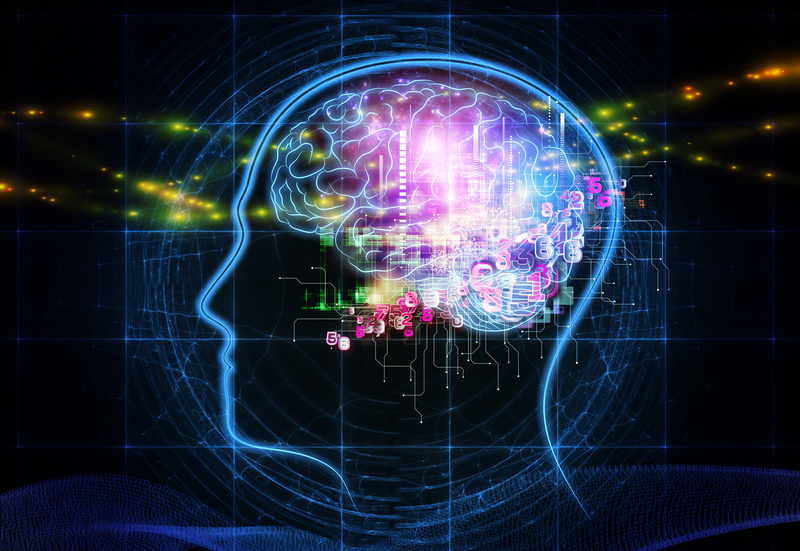A lot of myths appear around the influence of music on learning and intelligence. Perhaps the most common of them has been heard by everyone: if you are forced to listen to Mozart from birth, he will grow up talented. Is it so?
When and how did sustainable ideas about music affect the mind appear?
We understand the device of popular myths: looking for evidence or debunking them.
 Photo A Health Blog CC BY-SA
Photo A Health Blog CC BY-SAThe effect of Mozart - from the scientific hypothesis ...
In 2007, the books of the neurobiologist and psychologist Daniel Levitin “
This Is Your Brain on Music ” and the neurologist and neuropsychologist Oliver Sachs “
Musicophilia: Tales of Music and the Brain ” were included in the New York Times bestseller list. The theme of the influence of music on the brain has become more popular than ever.
But the so-called “Mozart effect” was first described as early as 1991 - the French researcher Alfred Tomatis (Alfred Tomatis) in his book “Why Mozart?” Said that with the help of Mozart’s music one can “train” the brain: supposedly sounds of a certain height help its recovery and development.
The theme was continued in 1993 - three scientists, Francis Rauscher, Gordon Shaw and Catherine Kai (Frances Rauscher, Gordon Shaw and Catherine Ky),
studied the effect of Mozart’s music on spatial thinking. Respondents passed standard tests for testing abstract space-time thinking in three states: after they had listened to Mozart’s Sonata for Two Pianos in D Major, K.448 for ten minutes, after the relaxation instruction, and finally when sat in silence.
The study showed a short-term improvement in spatial thinking - as a tool for measuring, some tasks from the Stanford Binet IQ test were used, where subjects had to search for missing parts or imagine how the figures of different shapes interact with each other.
Scientists looked only at one of the many blocks of the IQ test - it turned out that spatial thinking did improve, and significantly: by 8-9 points. True, not for long: the so-called "Mozart effect" lasted only 10 minutes.
... to the popular myth
Therefore, scientists did not conclude that under the influence of music, human intelligence develops. They only noted a temporary improvement in one of the types of thinking. Moreover, no research groups were able to repeat the results of Rauscher and her colleagues.
But the idea turned out to be extremely tenacious and firmly entrenched in the public consciousness — so much so that the “Mozart effect” leading to an increase in IQ (which was not said a word in the original research) was treated as a
well-known fact . Important reservations from the original study (short effect, the inability to repeat the results without accurately reproducing all the original conditions of the experiment) were safely forgotten.
Moreover, the experiments carried out "in the wake of" the research of Rausher showed that the matter may
not be in Mozart at all or even in music . People who like Schubert were offered to listen to Schubert, and then perform space-time tasks. People who love Stephen King, offered to listen to his works, and then solve the same problem. And in fact, and in another case, scientists have found an improvement in the ability to solve tasks.
This is how another hypothesis appeared - perhaps, listening to what he likes, a person cheers up, his mood improves, he enters the “state of the resource”, and therefore he copes better with his tasks. But Mozart here, it may well be at anything.
Play - do not listen
So, there is no solid scientific evidence that passive music consumption can improve cognitive abilities. But there is another common notion of music and its connection with the intellect -
playing a musical instrument makes a person smarter.
Such hypotheses began to appear as early as the first half of the twentieth century — for example, in the work “Relationships Between Intelligence, Scholastic Achievement, and Musical Talent” (“The relationship between intelligence, academic achievements and abilities to music”, 1937) by its author, Verne Ross (Verne Ralph Ross), suggested that the level of IQ and musical ability are related, and that the study of music has a positive effect on the development of intelligence.
Modern studies show that playing a musical instrument is unlikely to affect overall IQ, but it can
improve individual brain functions - memory, verbal intelligence, literacy, sensitivity to sounds and speech.
Playing musical instruments creates new neural connections in the brain and, as a result, can positively affect the level of IQ. Why this happens is not fully known. One possible explanation is that music-making involves several systems in the body: visual, auditory, tactile, motor, emotional, cognitive. And all of them should be synchronized and work in absolute harmony with each other - only then can a person play well.
 Photo by Tristan Loper CC
Photo by Tristan Loper CCSeveral experiments
In 2015, the American magazine Proceedings of the National Academy of Sciences published the results of a
study of brain development in two groups of teenagers from one school in Chicago: the first studied music, and the second were trained in the Junior Reserve Officer Training Corps program.
Scientists used the methods of neuropsychology and measured how the brains of adolescents participating in the experiment perceived and reacted to speech after three years of training in the chosen direction. Scientists have suggested that adolescents are the most interesting focus group for such an experiment, since in adolescence the brain continues to evolve. Therefore, by the end of the experiment, when scientists made control measurements, all respondents somehow improved their performance, but it was the difference that made the most interesting: students from the “music” group developed faster and more intensively than those who had military training.
Rauscher, who described the "Mozart effect," conducted another study. A group of preschoolers aged 3 to 4 years six months studying to play the piano. After this time, it turned out that those students who studied playing a musical instrument, 30% better cope with the tests on spatial thinking than children without musical education. The measurement was taken 24 hours after the end of the music lessons, and no further tests were performed. Therefore, there is no information on whether this effect persists. Rauscher, however, suggested that playing a musical instrument helps to understand such natural sciences and mathematics.
There are many explanations for this effect: for example, the
theory of neural connections and the theory of rhythms . The first was offered by Gordon Shaw and a group of researchers from the University of California: according to their assumptions, the same parts of the brain are responsible for "musical" and spatial thinking, and therefore their development is also connected.
The second theory was advanced by the British scientist Lawrence Parsons (
Lawrence Parsons ) and his colleagues: the theory is based on the concept of “mental rotation” (mental rotation), that is, a person’s ability to imagine two- and three-dimensional objects and mentally rotate them.
Mental rotation and a sense of rhythm, says Parsons, possibly due to the cerebellum, the part of the brain responsible for precise, fine motor skills. Accordingly, a person engaged in music and developing his sense of rhythm, in parallel, develops the ability to solve problems with "mental rotation", which, in turn, is associated with space-time thinking.
Studying the connection between music and intellectual development is an interesting research field, where there are no clear answers yet, but there are already many myths. In parallel with the neuropsychological, cognitive, physical, and other developments, sociocultural research is also underway. They, in turn, suggest that the link between music and the intellect is not biological,
but social .
Additional reading from our “Hi-Fi World”: